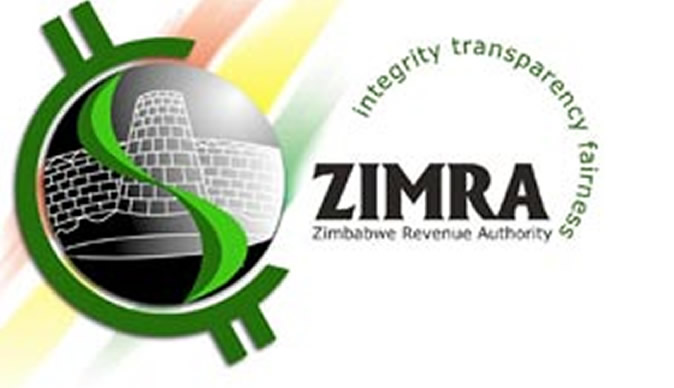
Industry and business say government’s move to allow the Zimbabwe Revenue Authority (Zimra) to sell fiscal devices will boost the fiscalisation programme as the authority charged much lower prices for the gadgets thereby accelerating compliance by companies.
BY FIDELITY MHLANGA
Early this year, Zimra was in the eye of a storm as the companies it selected to sell fiscal gadgets were charging exorbitant prices for the devices, which can be sourced at far cheaper prices on the international market.
Some of the approved suppliers were charging as much as $1 700 for the gadgets.
According to a Chinese and world’s biggest online commerce company, Alibaba.com, a tax cash register costs only $200 per unit.
In terms of General Notice 307 of 2017 which was published in the Government Gazette of June 23, Zimra was authorised to sell fiscal devices to Value Added Tax (VAT) registered operators who are required to use fiscal devices in terms of the Value Added Tax (Fiscalised Recording of Taxable Transactions) Regulations 104 of 2010.
Confederation of Zimbabwe Industries president Sifelani Jabangwe told Standardbusiness that allowing Zimra to sell the gadgets would be a major boost to the fiscalisation drive.
“I think in terms of the thrust of fiscalisation as required by law, we were not going to afford the gadgets with the old prices. It’s a good move because the gadgets are now affordable. It’s a good thing because competition is good for business. The private players were charging very high prices. Now that they are cheap, this will move compliance,” he said.
- Chamisa under fire over US$120K donation
- Mavhunga puts DeMbare into Chibuku quarterfinals
- Pension funds bet on Cabora Bassa oilfields
- Councils defy govt fire tender directive
Keep Reading
Zimra acting board secretary (corporate communications and international affairs) Ropafadzai Majaja said the tax collector was appointed by the technical committee to sell the fiscal devices in order to give additional impetus to the fiscalisation programme by promoting the availability and affordability of the fiscal gadgets. The technical committee is chaired by the ministry of Finance.
“To date, a total of nine suppliers, including Zimra, have been appointed to supply fiscal devices to VAT-registered operators. Zimra has acquired a total of 8 000 fiscal devices which are being sold at all Zimra offices. Substantial quantities of the acquired fiscal devices have been sold so far,” she said.
Zimra has slashed prices for the device with the electronic fiscal printer trading at $600 whereas electronic cash registers are pegged at $350.
It is not clear whether private companies have also reduced their prices.
A tax clearance certificate (ITF 263) is a certificate issued by the commissioner general of Zimra to a person liable to pay tax, provided that the taxpayer is compliant to all tax obligations.
For a client to obtain an ITF 263, he or she must furnish all statutory returns required to be submitted under all Acts administered by Zimra, or making satisfactory arrangements with Zimra for the furnishing of such returns.
In addition, under the fiscalisation programme, VAT-registered clients must have their systems interfaced with Zimra servers. However, tax clearance certificates may be availed to clients who have made noticeable efforts to get interfaced.
The installation of fiscal devices and connection of the gadgets to the Zimra server in accordance with the requirements of the law are, therefore, considerations in the granting of tax clearance certificates.
Jabangwe said the taxman should offer payment plans to cater for smaller businesses and struggling companies.
“Currently, business is struggling and I think there should be a payment plan to cater for the smaller business who struggles to break even,” he said.
Zimbabwe National Chamber of Commerce CEO Christopher Mugaga said the lowering of prices of fiscal gadgets was a good step in the ease of doing business, adding that private players had a tendency of making huge killings at the expense of businesses.
Economist Clemence Machadu said the taxman should have the monopoly in the supply of these devices as it would remove red tape on interfacing, repairs and other issues.
“Just like banks supply POS [point of sale] devices to various clients to promote electronic payments; since Zimra has a vested interest in the supply of fiscal devices, it should not be driven by a profit motive in the supply of the gadgets but by the goal to grow tax revenue and enhance full compliance with fiscalisation.
“Zimra should also consider offering these devices for free in advance, and then deduct the money later from clients considering that clients who install the devices have to further invest in back up power supply.”
Machadu said private players were short-changing businesses by charging exorbitant prices for gadgets, rendering the fiscalisation process a pipedream.
“There were also numerous supply bottlenecks as private suppliers would often not have the gadgets in stock or take forever to deliver. Kenya, with a population of 46 million and a much bigger economy than Zimbabwe’s, is being serviced by 12 suppliers. Zimbabwe with 13 million people and a smaller economy had eight suppliers who still could not meet demand and charged exorbitant prices,” he said.
However, economist Eddie Cross was of the view that Zimra should have left the selling of the fiscal devices to private companies.
“I do not think Zimra should be in the business of supplying business machines to the private sector. I also think that the whole question has been very badly handled from the start. Business has paid for machines and not received them, maintenance is a problem, servicing even worse. What they should have done was to simply set the standard and specifications and then left it to the private sector to supply. Because of controls, the equipment was overpriced and supplies erratic,” he said.











